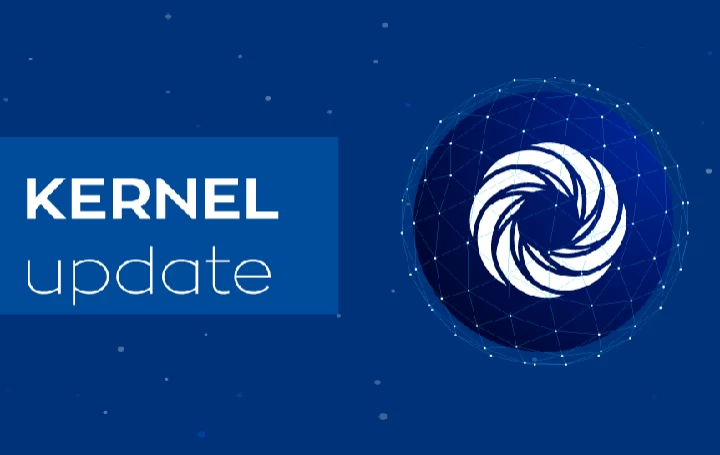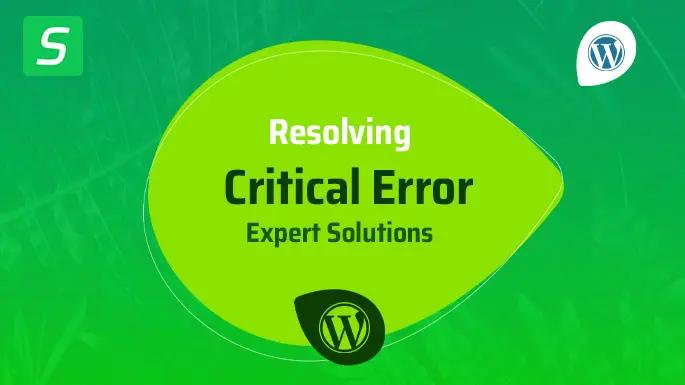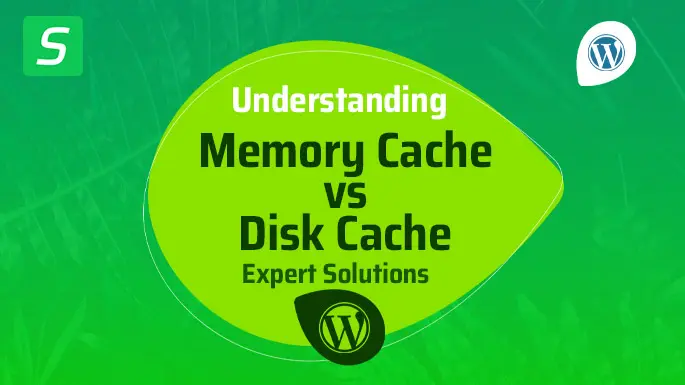Are you struggling to get your WordPress website to rank higher in search engine results? Do you feel like your SEO efforts are falling short and you’re not sure what you’re doing wrong? If so, you’re not alone. Many website owners face challenges when it comes to optimizing their WordPress sites for search engines. But fear not! In this comprehensive guide, we will dive deep into the world of WordPress SEO problems and provide you with practical solutions to help you overcome them. Whether you’re a beginner or an experienced WordPress user, this article will equip you with the knowledge and tools you need to fix your website’s SEO issues and boost your search engine rankings.
Search engine optimization is a critical aspect of any successful website, and WordPress offers plenty of powerful tools and plugins to help you optimize your site. However, even with these tools at your disposal, it’s easy to make mistakes or overlook important steps in the optimization process. From slow page load times to duplicate content, broken links, and poor keyword usage, there are numerous factors that can negatively impact your website’s SEO performance. But don’t worry – we’re here to guide you through the process of identifying and solving these problems. By the end of this article, you’ll have a clear understanding of how to identify and fix WordPress SEO issues, ensuring that your site is primed for search engine success. So, let’s get started and take your WordPress SEO game to the next level!
How to Fix WordPress SEO Problems:
- Install an SEO plugin like Yoast or All in One SEO Pack.
- Optimize your website’s meta tags, including title tags and meta descriptions.
- Create an XML sitemap and submit it to search engines.
- Improve your site’s loading speed by optimizing images and using caching plugins.
- Ensure your content is high-quality and relevant to your target keywords.
- Build high-quality backlinks from reputable websites.
- Regularly monitor and fix any broken links on your site.
- Optimize your website for mobile devices.
- Utilize social media to promote your content and increase visibility.

How to Fix WordPress SEO Problems
In today’s digital landscape, having a website that ranks well in search engine results is crucial for any business or individual looking to increase their online visibility. WordPress, being one of the most popular content management systems, offers a wide range of SEO tools and features to help optimize your website. However, like any platform, WordPress is not without its SEO challenges. In this article, we will discuss some common WordPress SEO problems and provide step-by-step solutions to fix them.
1. Slow Loading Speed
One of the most common issues that can negatively impact your WordPress website’s SEO is slow loading speed. A slow website not only frustrates visitors, but it also affects search engine rankings. To fix this issue, follow these steps:
First, optimize your images. Large image files can significantly slow down your website. Resize and compress your images using tools like Photoshop or online compression services.
Next, minify your CSS and JavaScript files. Minification involves removing unnecessary characters and spaces from your code to reduce file sizes. You can use plugins like Autoptimize or WP Rocket to automate this process.
2. Duplicate Content
Duplicate content refers to identical or very similar content that appears on multiple webpages. This can confuse search engines and dilute your website’s SEO efforts. To address this problem, take the following steps:
First, use canonical URLs. A canonical URL is the preferred version of a webpage that you want search engines to index. By specifying the canonical URL, you can avoid duplicate content issues. WordPress has plugins like Yoast SEO or All in One SEO Pack that simplify this process.
Next, set up 301 redirects. If you have multiple URLs pointing to the same content, you can redirect them to the preferred URL using a 301 redirect. This informs search engines that the content has permanently moved, consolidating its ranking signals.
3. Broken Links
Broken links are not only frustrating for users but also detrimental to your website’s SEO. Search engines may view broken links as a sign of poor website maintenance, resulting in lower rankings. To fix broken links, follow these steps:
First, identify broken links. You can use online tools like Broken Link Checker or plugins such as Broken Link Checker for WordPress, which will crawl your website and identify any broken links.
Next, fix or remove broken links. Once you have identified the broken links, you can either update the URLs or remove the links altogether. This ensures that your website provides a seamless user experience and maintains a strong SEO profile.
4. Poorly Optimized Metadata
Metadata plays a crucial role in helping search engines understand the content and relevance of your webpages. Poorly optimized metadata, such as missing meta titles or descriptions, can hinder your SEO efforts. To optimize your metadata, follow these steps:
First, write unique and compelling meta titles. Your meta titles should accurately describe the content of each webpage while incorporating relevant keywords. Use plugins like Yoast SEO or All in One SEO Pack to easily customize your meta titles.
Next, craft informative meta descriptions. Meta descriptions provide a concise summary of your webpage’s content. They should be compelling, concise, and include relevant keywords. Again, plugins like Yoast SEO can help you optimize your meta descriptions.
Remember, optimizing your WordPress website for SEO is an ongoing process. Regularly monitor your website’s performance, stay up to date with the latest SEO best practices, and make necessary adjustments to ensure your website achieves its maximum potential in search engine rankings.
Frequently Asked Questions
Below are some commonly asked questions about fixing WordPress SEO problems. Read on to find solutions to common issues and improve your website’s search engine optimization.
1. How do I optimize my WordPress website for search engines?
To optimize your WordPress website for search engines, follow these steps:
First, install an SEO plugin like Yoast SEO or All in One SEO Pack. These plugins provide tools to optimize your website’s meta tags, XML sitemaps, and more. Next, focus on your website’s content. Ensure that your pages and posts have relevant keywords in the title, headings, and body. Use descriptive URLs and add alt tags to your images. Additionally, improve your website’s loading speed by compressing images, using caching plugins, and choosing a reliable hosting provider. Lastly, build high-quality backlinks from reputable websites to improve your website’s authority and visibility in search engine results.
2. How can I fix duplicate content issues on my WordPress site?
Duplicate content can harm your website’s SEO. To fix this issue, follow these steps:
First, identify the duplicate content on your website. You can use tools like Screaming Frog or Siteliner to scan your site for duplicate pages or content. Once identified, decide whether to delete, consolidate, or canonicalize the duplicate content. Delete any unnecessary or low-quality duplicate pages. If you have similar content across multiple pages, consider consolidating them into one comprehensive page. Use canonical tags to indicate the preferred version of the content to search engines. Additionally, ensure that your website’s internal linking structure is optimized to avoid creating duplicate content unintentionally.
3. Why is my WordPress site not appearing in search engine results?
If your WordPress site is not appearing in search engine results, there may be a few reasons:
First, check if your website is indexed by search engines. You can do this by searching “site:yourdomain.com” in the search engine. If no results appear, submit your website’s sitemap to search engines like Google and Bing. Next, ensure that your website’s content is optimized with relevant keywords and meta tags. Poor optimization may cause search engines to overlook your site. Additionally, check your website’s robots.txt file to ensure it is not blocking search engine crawlers. Finally, consider building backlinks from reputable websites to improve your site’s authority and visibility in search engine results.
4. How can I improve the loading speed of my WordPress site?
To improve the loading speed of your WordPress site, you can take the following steps:
First, optimize your images by compressing them without sacrificing quality. You can use plugins like Smush or EWWW Image Optimizer for this purpose. Next, enable caching on your website using plugins like W3 Total Cache or WP Super Cache. Caching reduces the server load and delivers content faster to your visitors. Minify your CSS and JavaScript files to reduce their size and improve loading speed. You can use plugins like Autoptimize or WP Rocket for this purpose. Finally, choose a reliable hosting provider that offers good server performance and uptime.
5. How do I fix broken links on my WordPress site for better SEO?
To fix broken links on your WordPress site and improve SEO, follow these steps:
First, identify the broken links on your website. You can use tools like Broken Link Checker or Screaming Frog for this purpose. Once identified, update or remove the broken links. If the broken links point to external websites, consider finding alternative sources or removing the links altogether. Ensure that your internal links are working correctly, as broken internal links can negatively impact user experience and SEO. Additionally, regularly monitor your website for broken links and fix them promptly to maintain a healthy website structure.

How to Fix Common SEO Issues on WordPress | WordPress | WordPress Website | Build a Website | SEO
In conclusion, addressing and resolving WordPress SEO problems is crucial for the success of your website. By following the steps outlined in this guide, you can effectively diagnose and tackle common issues that may be hindering your site’s visibility and organic traffic. Remember to continuously monitor your website’s performance and make necessary adjustments to stay ahead in the ever-evolving world of SEO.
Investing time and effort into optimizing your WordPress site will not only benefit your search engine rankings but also enhance the user experience. By implementing proper keyword research, optimizing on-page elements, improving website speed, and leveraging the power of plugins, you can ensure that your website is not only search engine-friendly but also appealing to your target audience. By staying informed about the latest SEO trends and best practices, you can stay one step ahead of the competition and maximize the potential of your WordPress website. So go ahead, fix those SEO problems and watch your website soar to new heights!





